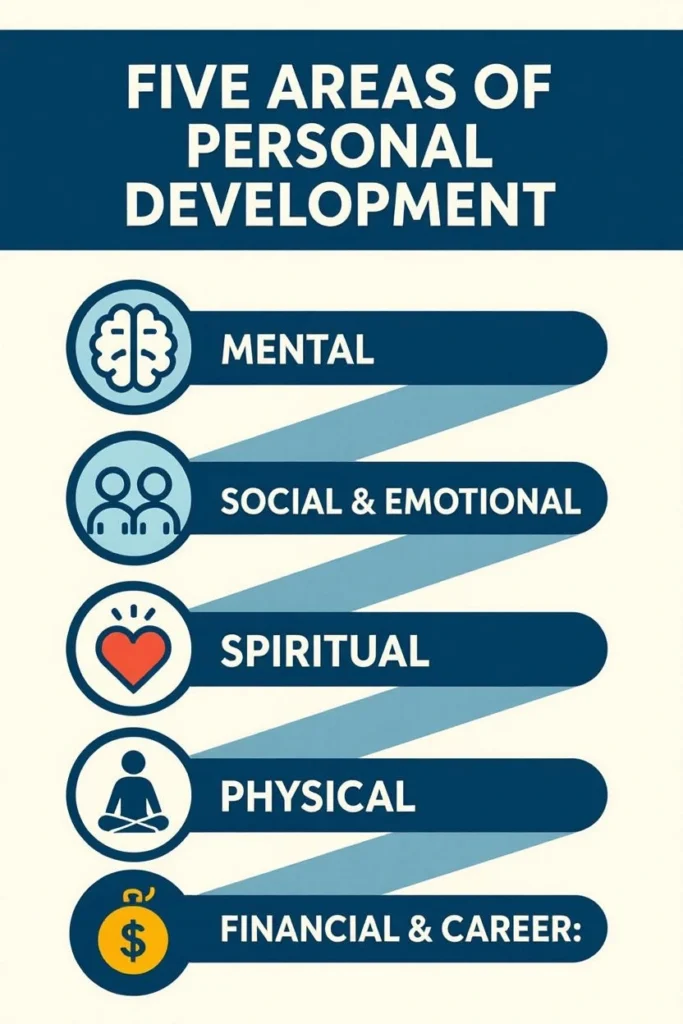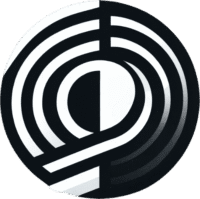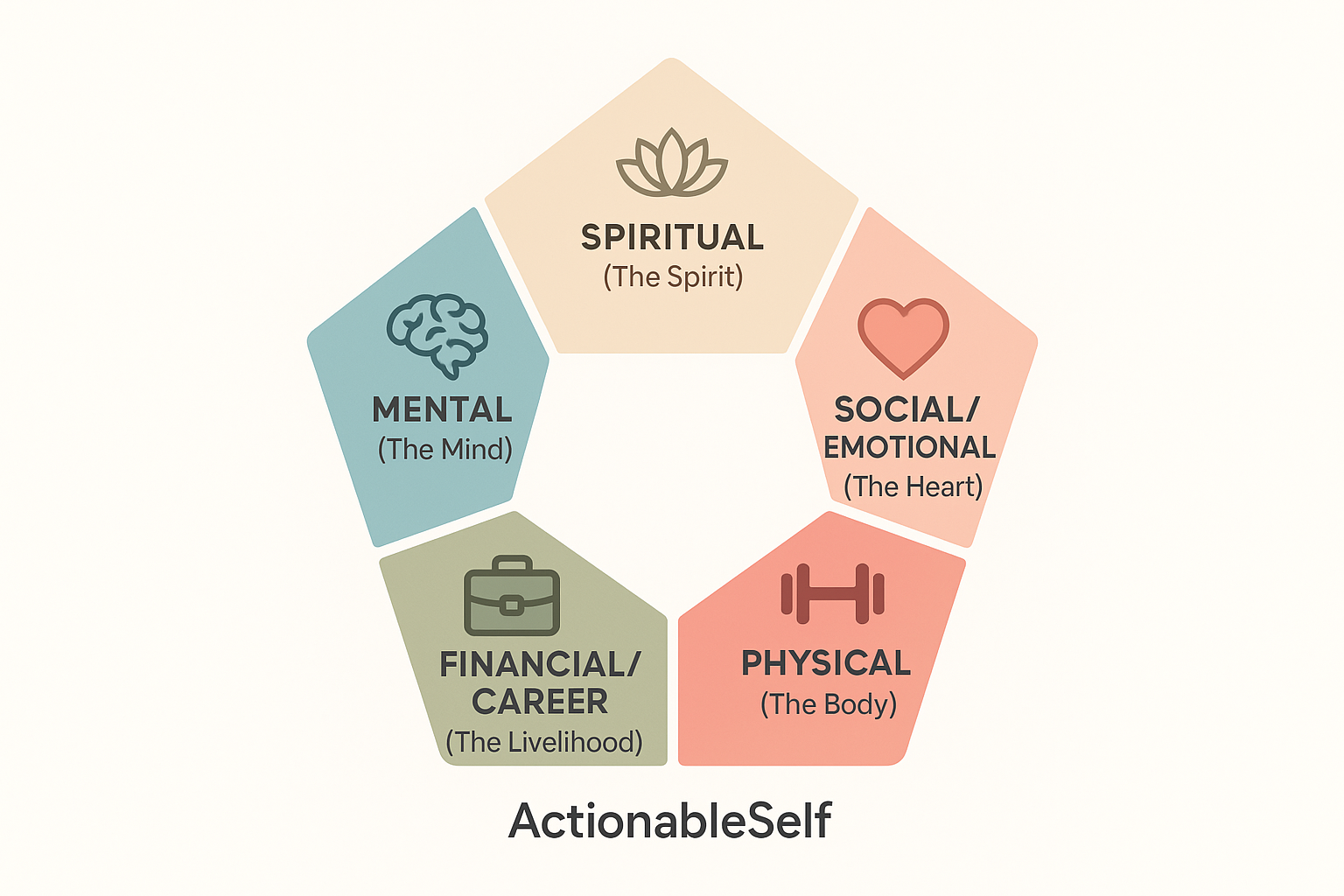Have you ever had that quiet feeling that you’re capable of more? It’s a common human experience. We sense a gap between the person we are today and the person we have the potential to become. The journey to bridge that gap has a name: personal development.
But what is personal development, really? It’s more than just a buzzword. It’s the conscious, intentional process of improving yourself to reach your full potential. It’s about moving from a passive passenger in your life to an active architect of your future.
This guide will provide a clear definition, explore the key areas of growth, and show you why personal development is a lifelong process that is crucial for your success and happiness.

The Meaning of Personal Development: Beyond Self-Help
At its core, personal development is a commitment to personal growth. It’s the structured approach to improving your awareness, your knowledge, and your skills.
Think of it this way:
- It’s an intentional process, not an accident.
- It covers both personal and professional aspects of your life.
- It’s about building a deeper understanding of yourself and the world.
The ultimate goal is to become the best version of yourself, which leads to a more fulfilling and effective life.
What are the 5 Key Areas of Personal Development?

To make this journey manageable, it’s helpful to break it down into five key areas. A balanced approach to growth involves paying attention to each of these interconnected domains.
1. Mental Development (The Mind)
This is about expanding your knowledge and mindset. It involves becoming a lifelong learner, challenging your beliefs, and improving your critical thinking.
- Actionable Goal Example: Develop your skills by taking one online course this quarter.
2. Social & Emotional Development (The Heart)
This area focuses on improving your relationships and emotional intelligence. It’s about learning to understand and manage your own emotions and empathize with others.
- Actionable Goal Example: Practice active listening in your next important conversation.
3. Spiritual Development (The Spirit)
This is not necessarily about religion. It’s about connecting with your core values and your sense of purpose. It’s your “why.”
- Actionable Goal Example: Start practicing mindfulness for 5 minutes each morning.
4. Physical Development (The Body)
Your body is the foundation for your energy and focus. This area includes your nutrition, exercise, and sleep.
- Actionable Goal Example: Improve your physical health by going for a 30-minute walk, three times a week.
5. Financial & Career Development (The Livelihood)
This area is about building a stable and fulfilling professional life. It’s where you set goals for your career and manage your finances.
- Actionable Goal Example: Define three clear career goals for the next 12 months.
For a deep dive into each of these 5 areas with more examples, read our complete guide: The 5 Key Areas of Personal Development.
What are the Core Skills of Personal Development?
Personal development is built on a foundation of learnable skills. Here are some of the most important ones:
- Self-Awareness: The ability to understand your own emotions, strengths, and weaknesses.
- Communication: The skill of expressing yourself clearly and listening with empathy.
- Goal Setting: The ability to define clear objectives for your future.
- Time Management: The skill of organizing and using your time effectively.
- Resilience: The ability to bounce back from adversity and learn from setbacks.
How to Start Your Personal Development Journey Today
The most important thing to remember is that development is a lifelong process. You don’t need to change everything at once. The key is to start small and build momentum.
Step 1: Identify ONE Area to Focus On
Look at the five areas above. Which one, if improved slightly, would have the biggest positive impact on your life right now? Don’t try to work on all of them. Choose one.
Step 2: Set ONE Small, Actionable Goal
Now, for your chosen area, set one small goal.
- If you chose Mental, your goal could be to read 10 pages of a book each day.
- If you chose Physical, your goal could be to drink 8 glasses of water daily.
Step 3: Track Your Progress
The key to building a new habit is to track it. Use a simple notebook or a habit-tracking app to mark off each day you complete your small goal. This creates a visual record of your success and builds motivation.
Conclusion: Your Journey of Growth
What is personal development? It’s the commitment to becoming a better version of yourself, one small step at a time. It’s a journey that encompasses your personal and professional life, from learning to set goals to practicing mindfulness.
By focusing on the key areas and skills, you can build a life of purpose, resilience, and fulfillment.
Ready to build a complete plan for your growth? Explore our Ultimate Guide to Personal Development to learn how to create a structured plan for your life.


